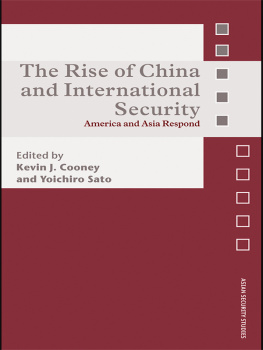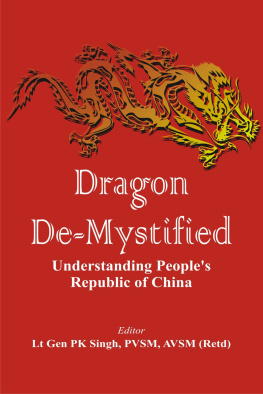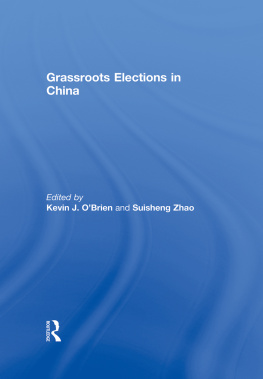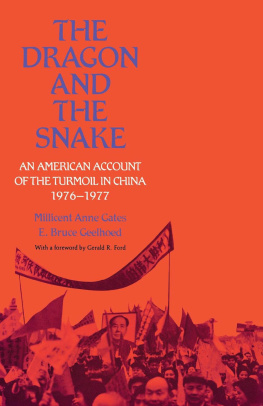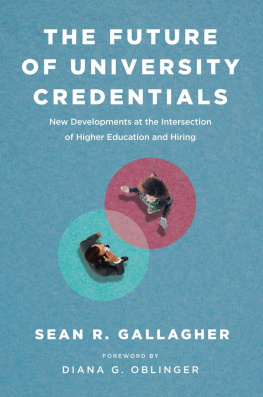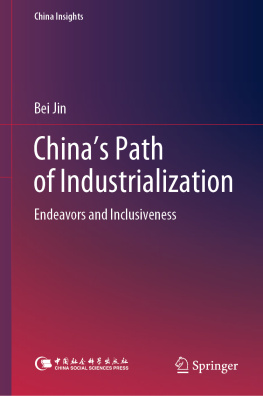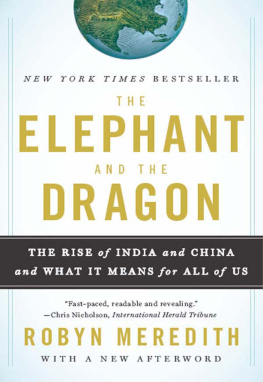Stanford University Press
Stanford, California
2010 by the Board of Trustees of the Leland Stanford Junior University. All rights reserved.
No part of this book may be reproduced or transmitted in any form or by any means, electronic or mechanical, including photocopying and recording, or in any information storage or retrieval system without the prior written permission of Stanford University Press.
Special discounts for bulk quantities of Stanford Business Books are available to corporations, professional associations, and other organizations. For details and discount information, contact the special sales department of Stanford University Press. Tel: (650) 736-1782, Fax: (650) 736-1784
Printed in the United States of America on acid-free, archival-quality paper
Library of Congress Cataloging-in-Publication Data
Gallagher, Kevin, 1968
The dragon in the room : China and the future of Latin American industrialization / Kevin P. Gallagher and Roberto Porzecanski.
p. cm.
Includes bibliographical references and index.
ISBN 978-0-8047-7187-0 (cloth : alk. paper)
ISBN 978-0-8047-7188-7 (pbk. : alk. paper)
1. Latin AmericaCommerceChina. 2. ChinaCommerceLatin America. 3. ExportsLatin America. 4. ExportsChina. 5. IndustrializationLatin America. I. Porzecanski, Roberto. II. Title.
HF3230.5.Z7G35 2010
338.098dc22
2010018618
Typeset by Westchester Book Services in 10/13.5pt Sabon
eISBN: 9780804775984
Preface and Acknowledgments
In the earlier part of the decade, Kevin P. Gallagher and colleague Lyuba Zarsky were spending a significant amount of time in Mexico conducting research on the extent to which foreign investment into Mexico's high-technology sector produced broad benefits for the Mexican economy under the North American Free Trade Agreement (NAFTA). In the early years of our research, most of the business leaders we talked to were very optimistic about their future as key exporters to the United States. Indeed, they saw such exports as an engine that could upgrade Mexico's manufacturing capabilities and eventually move the nation away from being a low-skilled assembly manufacturer. Later in the decade all anyone in Mexican manufacturing wanted to talk about was China. We went on to publish our work in a book titled The Enclave Economy: Foreign Investment and Sustainable Development in Mexico's Silicon Valley.
The United Nations Economic Commission for Latin America (ECLAC) also shared concern about China. In 2004, ECLAC's research director in Mexico, Juan Carlos Moreno Brid, and Kevin Gallagher decided to conduct a comprehensive assessment of the competitiveness of Mexican exports vis--vis China. They teamed with Uruguayan political economist Roberto Porzecanski to write an article on the subject, which appeared in the journal World Development. of this book draws heavily from that early work.
While Juan Carlos went on to write his comprehensive book on the Mexican economy with Jaime Ros, titled Development and Growth in the Mexican Economy, Roberto and Kevin continued to delve deeper into the China-Latin America economic relationship. More than five years later, the result of that effort is this book.
We are grateful to the many people and organizations that made this book possible. First we want to thank the Global Development and Environment Institute (GDAE) at Tufts University. At GDAE we would specifically like to thank Tim Wise, GDAE's research director, for guidance and support. Wise and GDAE's Ann Helwege provided friendly but sharp comments and backing throughout the process. Our colleagues Neva Goodwin, Jonathan Harris, and Brian Roach provided valuable feedback during GDAE seminars where we first shared our preliminary findings. Frank Ackerman of the Stockholm Environment Institute works out of the GDAE offices and provided numerous insights as well. Last but not least, we would like to thank Joshua Berkowitz, Lauren Denizard, and Mukhtar Amin for providing cheerful and important administrative support throughout the process.
In addition to the early paper in World Development, very preliminary versions of some of these chapters appeared as working papers at the University of California-Berkeley's Center for Latin American Studies and at the University of Massachusetts-Amherst's Political Economy Research Institute. We thank Harley Shaiken at Berkeley and Gerald Epstein at UMass for giving us these venues to get early feedback on our preliminary findings. draws heavily on a working paper written by Kevin Gallagher with Mehdi Shafaeddin for the IDEAS network. We thank Mehdi for a wonderful collaboration and International Development Economics Associates (IDEAS) for allowing us to get early feedback on that preliminary work as well.
We also had numerous opportunities to present versions of these chapters at conferences and workshops over the past five years. We thank the David Rockefeller Center for Latin American Studies at Harvard University, Mt. Holyoke College, Connecticut College, and Rensselaer Polytechnic Institute for inviting one of us to present this work in seminar form. We also presented parts of this work at numerous conferences convened by the New England Council for Latin American Studies, the Latin American Studies Association, and the Society for the Advancement of Socio-Economics.
We are grateful for financial support from the Ford Foundation, the Rockefeller Brothers Fund, General Services Foundation, and Boston University for funding us to conduct this research.
Boston University continues to provide a great home to Kevin Gallagher. He thanks his students and colleagues for continued inspiration and ideas. Gallagher also sincerely thanks the Frederick S. Pardee Center for the Study of the Longer-Range Future for making him a faculty fellow and supporting some of the research for this volume.
We thank Stacy Wagner and Stanford University Press for their faith in this book. We also thank Jessica Walsh, Puja Sangar, and Kate Wahl at SUP.
We also just have to thank the staff and ownership at Anna's Taqueria in Davis Square for the delicious meals that provided the energy for a big part of our project, as well as for the environment in which many critical discussions about this book took place. We will have to walk from lecture to lecture on our book tour to burn off all those wonderful calories!
We dedicate this volume to our loving and supportive families. Kevin thanks his wife, Kelly, and children, Theodore and Estelle, for their never-ending love, cheer, and support. Roberto thanks his parents, Ignacio and Martha, his sisters, Ana Luz and Isabel, and his grandmother, Linda, for their unconditional love and support. He especially thanks Karen, his wife, for being his source of inspiration, for her precious love, and for the invaluable encouragement and support she provided throughout this and all other endeavors in the last twelve years.
1 Enter the Dragon
China is an awakening monster that can eat us.
Carlos Ziga, Nicaraguan CAFTA negotiator
La Prensa (Nicaragua), March 10, 2004
What are the factors driving the crisis of the textile sector? First is the global competition of China, which is more and more present in every market.
Isaac Soloducho, president of Paylana, a leading exporter of high-quality wool-based apparel in Uruguay
El Observador (Uruguay), November 20, 2006, p.13
There is a growing clamor in Latin America and the Caribbean (LAC) over the extent to which the region is being economically swallowed by China. Some claim that China's exports are flooding domestic LAC markets and wiping out local firms. Others refer to China as an angel for the region that will deliver the fruits of growth by importing LAC goods and investing in the LAC region. Yet there is no contention at all in LAC (or anywhere else) that China's export-led economic expansion since the early 1980s has been anything short of a miracle.



